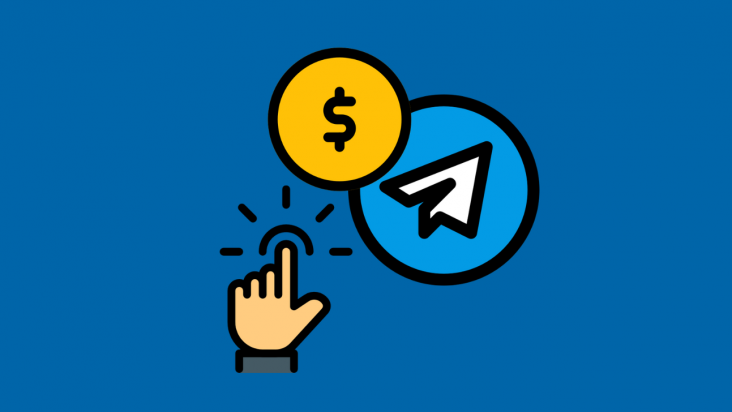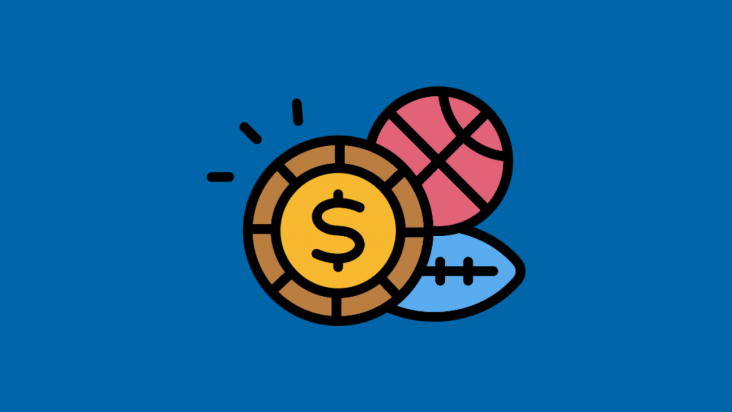
To initiate a lawful gambling enterprise, obtaining an online gaming license and adhering to the regulations set by governing bodies is essential. This article will explore the basic requirements for licensing and the potential for acquiring gaming licenses in various locations, including Estonia, Curacao, Malta, Kahnawake, Panama, Isle of Man, and South Africa.
Curacao Gaming License
A self-governing state entity, located in the south of the Caribbean Sea, off the coast of Venezuela. Today, it is a potent gambling regulator, operating since 1996, and offers 2 distinct license types: master and sublicenses. A master license is valid for five years, while a sublicense will last for as long as its corresponding master license remains active.
The advantages of securing a license here include:
- Relatively cheaper cost;
- The license is available in six weeks;
- 0% corporate tax and 2% net income tax;
- Accepts cryptocurrency as payment;
- Easier acquisition process, compared to other jurisdictions;
- One license covers all activities.
Restricited Countries
You cannot operate with a Curacao gambling license in countries where online gambling is completely prohibited or in jurisdictions that require local licensing for gambling operations. This includes countries like Turkey, China, UAE, Cambodia, North Korea, Japan, Brunei, Lebanon, Qatar, Poland, the United States, the United Kingdom, Singapore, Aruba, Belize, Saba, Statia, and St. Maarten. Additionally, some European and Asian countries also fall into this category, though specific names beyond those listed may vary based on evolving regulations and local laws.
The Curacao license is generally recognized in jurisdictions that either have no specific laws regulating online gambling or those that allow gambling services from operators licensed in certain foreign countries. However, it’s important to note that the legal landscape for online gambling is subject to change, and operators must continually ensure they comply with the regulations of each country they target
Does Curacao gaming license cover sports betting?
Yes, the Curacao gaming license covers sports betting, along with other forms of online gambling such as casino games, poker, and lotteries. Curacao is one of the most popular jurisdictions for online gaming businesses due to its relatively straightforward licensing process, cost-effectiveness, and favorable tax regime.
The Curacao eGaming license is comprehensive, allowing operators to offer various types of gambling activities under a single license. This one-size-fits-all approach is particularly advantageous for operators looking to offer a range of services, including sports betting, without the need to obtain multiple licenses.
Obtaining Curcacao Gaming License
The process for obtaining a Curacao gaming license involves several steps, including:
- Company Formation: Establishing a company in Curacao, as the license can only be granted to a Curacao-based entity.
- Application Submission: Submitting an application to the Curacao eGaming authority, including detailed business plans, financial forecasts, and information on the ownership structure.
- Compliance and Due Diligence: Undergoing a rigorous due diligence process, where the backgrounds of the company’s owners and operators are thoroughly checked.
- Technical and Operational Readiness: Demonstrating the operational capabilities, including server hosting in Curacao, and ensuring that the gaming software complies with the authority’s standards.
- License Issuance: Upon successful completion of the above steps, the Curacao eGaming authority will issue the license, which needs to be renewed annually.
Operators holding a Curacao gaming license are required to adhere to the regulations and standards set by the Curacao eGaming authority, including fair play, responsible gaming, and anti-money laundering measures.
Master License
The Curacao master license refers to a type of online gaming license issued by the government of Curacao, a Caribbean island. This license allows the holder to operate an online gambling platform, offering services such as casino games, sports betting, and other forms of online betting. The master license covers all gaming operations, making it comprehensive for operators who want to offer a wide range of gambling services.
The Curacao licensing authority grants these licenses, and holders of a master license can also issue sub-licenses to other operators. These sub-licenses are essentially the same as the master license but are issued under the authority of the master licensee. The Curacao gaming license is popular among online gambling operators due to its relatively low cost, straightforward application process, and favorable tax laws.
For How Long Curacao Master License is Valid?
A Curacao Master License is valid for a period of five years. After this period, it needs to be renewed.
Sublicenses
The sublicense allows you to operate an online gaming business legally under the authority of a Master License holder.
Can I get curacao sublicense without holding master license?
Yes, you can obtain a Curacao sublicense without holding a Master License. The sublicense allows you to operate an online gaming business legally under the authority of a Master License holder. This means that while you don’t own the Master License yourself, you can still run your gaming operations by aligning with a Master License holder who grants you the sublicense.
For how long Curacao sublicense is valid?
A Curacao sublicense remains valid indefinitely as long as the master license under which it was issued remains valid. There is no specific expiration date for a sublicense; its validity is tied to the status of the master license
Here’s how the process typically works:
- Find a Master License Holder: You need to partner with a company that already holds a Curacao Master License. These entities have the authority to issue sublicenses to other businesses. There many of firms on the market such as CEG or EM Gorup.
- Apply for a Sublicense: Once you’ve identified a Master License holder, you can apply for a sublicense through them. The application process will require you to provide business details, proof of identity, and other relevant documents.
- Compliance and Due Diligence: The Master License holder will conduct due diligence checks to ensure your business complies with the regulatory requirements. This may include financial stability checks, software audits, and background checks.
- Agreement and Fees: If your application is successful, you will enter into an agreement with the Master License holder and pay the necessary fees for obtaining the sublicense.
- Operate Your Business: With the sublicense, you can legally operate your online gaming business, subject to the regulatory oversight and conditions set by the Master License holder.
Obtaining a sublicense is a popular route for many operators in the iGaming industry, as it provides a quicker and often less costly entry into the market compared to obtaining a Master License directly.
Malta Gaming License
The Malta Gaming License, issued by the Malta Gaming Authority (MGA), is a premier credential that authorizes companies to operate gaming and betting services legally. This certification is globally recognized and highly sought after due to Malta’s pioneering regulatory framework, which ensures transparency, fairness, and crime prevention in the gaming industry. Entities holding this license benefit from Malta’s robust legal structure, favorable tax regime, and the reputation of having one of the most respected regulatory bodies in the gaming sector.
For example, the MGA offers the B2C (Business to Consumer) license for operators directly managing and conducting gaming operations with players, and the B2B (Business to Business) license for software providers and platform operators supplying the gaming industry. The B2C license includes categories for casino games, lotteries, sports betting, and more, ensuring a regulated environment for diverse gaming activities. Operators like Betsson and Kindred Group are prime examples of entities that have secured Malta Gaming Licenses, leveraging Malta’s conducive gaming ecosystem to operate across various markets globally. These licenses underscore Malta’s position as a hub for online gaming, attracting a plethora of companies seeking to benefit from its advantageous and reputable licensing framework.
Does MGA issue sublicenses?
No, the Malta Gaming Authority (MGA) does not issue sublicenses. Instead, the MGA offers comprehensive licenses covering various aspects of gaming operations.
Each license type is designed to cover all necessary activities under one umbrella, eliminating the need for separate sublicenses. This approach ensures that all entities operating under the MGA’s jurisdiction adhere to the same high standards of regulation, player protection, and operational transparency.
Do I need different MGA license for online casino and sportsbook?
Yes, if you intend to operate both an online casino and a sportsbook, you may need different types of licenses from the Malta Gaming Authority (MGA), depending on how your business is structured. The MGA offers different types of licenses for various gaming activities:
- B2C Gaming Service Licence: This is for operators who deal directly with consumers. If you want to operate an online casino and a sportsbook, you can apply for a B2C licence that covers both types of activities. The MGA categorizes gaming services under different classes, and you would need to ensure your B2C licence covers both online casino games (typically under Type 1 gaming services) and sports betting (typically under Type 2 gaming services).
- B2B Critical Gaming Supply Licence: This is for operators who provide gaming services and control to other licensed operators, not directly to consumers. This would not be applicable if you are operating your own online casino and sportsbook directly.
For most operators who wish to run both an online casino and a sportsbook, applying for a B2C Gaming Service Licence that covers both activities is the appropriate route. This way, you are authorized to offer multiple types of gaming activities under one consolidated licence, avoiding the complexity and additional costs of managing separate licences for each type of service.
Malta also hosts the annual Gambling Exhibition, bringing various operators, casino owners, and other market participants together, which offers a chance to find specialists of any kind.
Isle of Man Gambling License
This license is a regulatory approval granted by the Isle of Man Gambling Supervision Commission (GSC) to online gaming operators. It is a coveted certification in the gaming industry, symbolizing a high standard of fairness, transparency, and digital security. The Isle of Man is a reputable jurisdiction for online gaming due to its robust legal framework, which includes the Online Gambling Regulation Act 2001. This legislation ensures that licensed operators adhere to strict guidelines concerning player protection, anti-money laundering (AML) practices, and responsible gaming.
Examples of entities holding an Isle of Man gaming license include major online poker rooms and sports betting companies. For instance, PokerStars, one of the largest online poker platforms, operates under this jurisdiction, showcasing the license’s appeal to top-tier gaming entities. Similarly, Pinnacle Sports, renowned for its sports betting services, also holds an Isle of Man license, highlighting the broad appeal and trustworthiness of this licensing authority in the global gaming market. These examples illustrate the Isle of Man’s status as a premier licensing destination for gaming operators seeking to establish credibility and attract a global audience.
Alderney gambling license
Why is registering a gambling company worth it?
The most important point in favor of acquiring a casino license is increased payment operator trust. All the various fees and taxes already spell out significant financial investments, leading some gambling platform owners to seriously consider flying without one. In practice, however, the pros of securing a license far outweigh the cons.
Most payment systems avoid getting in trouble with the law, and will refuse to cooperate with unlicensed gambling companies to minimize fraud risks. A legal permit, in turn, guarantees that the operator’s services will not be used for money laundering.
Another crucial point is increased customer confidence. People are more willing to engage with accredited enterprises based on a similar logic, which dictates that a licensed casino is trustworthy and will not scam them. Many value reliability over the number of games or the promise of bigger prizes.
Having a license also helps retain and attract more customers, as it allows casinos to advertise on various websites and catch the eye of a larger number of users. Gaming houses without a license will find promoting their services more difficult, since it may draw the attention of regulatory authorities instead of paying visitors.
Which countries offer casino licenses?
Every country has a different stance on gambling. Some may ban gambling companies outright, while others give them the green light and streamline the licensing process. The latter category includes places such as:
- Curaçao;
- Kahnawake;
- Malta;
- Gibraltar;
- The Isle of Man.
These countries offer a unique level of cooperation, so it is worth taking a closer look at every one of them.
Malta
One of the most famous regulators globally, the Malta Gambling Authority (MGA), operates here. Getting a license is a bit more difficult and expensive than in Curaçao, but it opens up more opportunities in the European market.
MGA issues 4 types of licenses that allow operators to:
- Organize games of chance, where the outcome is determined by a random number generator (RNG) (for example, slots);
- Organize games where the outcome is determined by the outcome of the event (for example, sports betting);
- Organize games of chance that generate income as a commission from bets (for example, poker);
- Organize games of skills, where the outcome depends on statistical data (for example, fantasy sport).
In 2018, a reform in the gambling industry took place here, which relieved license holders of the need to apply for separate licenses and abolished the monthly payment for the first 12 months of casino operation.
It is worth noting that obtaining a gambling license in Malta is fraught with particular difficulties:
- Conformity check;
- Business plan analysis (MGA must be convinced of its viability);
- Operational and regulatory requirement verification (registration documents, verticals, conditions, policies and procedures, financial reserves of €100,000 for the first and second license types, €40,000 for the third and fourth types);
- System check (the applicant starts the operation, and the responsible person makes sure that everything is in order);
- Verification of compliance (the auditor confirms that the operator complies with the regulation within 90 days of the launch date).
Kahnawake
The Kahnawake Gaming Commission is the official gambling regulator for the province of Quebec, Canada. It supervises and regulates the quality of service provided by online casinos, poker rooms, bookmakers, etc.
A license here has several advantages, including a 0% corporate tax and no additional gambling fee. Such an offer is especially convenient in the first years of operation, while the player base is still being formed. The initial license is valid for 6 months until project revision. If the project meets expectations and has not garnered a considerable amount of user complaints, a new license will be issued for the next 5 years. It is worth noting that casinos holding these licenses generally have good reputation among players.
Gibraltar
Gibraltar is a British Overseas Territory that issues licenses respected around the world. It grants 6 different license types, and operators must obtain separate permissions for each service they plan to render:
- B2C online casino operators;
- Betting platforms;
- Other gambling products;
- Land-based casinos;
- Land-based bookmakers;
- B2B service providers for the gambling industry.
The advantages of a Gibraltar gambling license include transparent pricing, excellent reputation, and reliable administration. Online casinos and sportsbooks are also subject to low taxes: 1% on income ranging from £85,000 to £425,000.
Instead of collecting annual and license renewal fees, as well as all the application fees, the Commission charges a single payment of £100,000 for a license valid for 5 years.
The Isle of Man
A territory owned by the British crown, with the local Gambling Commission having been in operation since 2001. While there is no list of prohibited regions here, it is assumed that licensees will not aim at markets where gambling is prohibited. The low tax on gambling activities, ranging from 0.1% to 1.5% of GGY, and the absence of a capital gains tax originate in the regulator’s desire to support the gambling sector. It also fully supports blockchains and cryptocurrencies.
Casinos wishing to obtain a license must meet the following requirements:
- The company must be registered on the island;
- Must have two resident directors;
- B2C operators must register their players on servers located on the island;
- A license review fee of £5,000 must be paid and all required application forms filled in;
- Players’ deposits must be protected at all times;
- All games, RNG, and game systems must be certified by an independent laboratory;
- Directors, company representatives, and beneficial shareholders of at least 5% of the company have to undergo independent assessment.
It is a profitable option for casinos that plan to operate in Europe and many other regions.
What to look for when choosing a license?
Pay attention to the following points when choosing a license:
- License fee amount;
- Level of experience;
- The number of required licenses;
- Administrative costs;
- Taxes;
- International recognition;
- Partner companies’ requirements;
- Type of gambling activity.
Kahnawake and Curaçao are most suitable for beginners, while larger casinos with a sizeable clientele should turn their attention to Malta.







